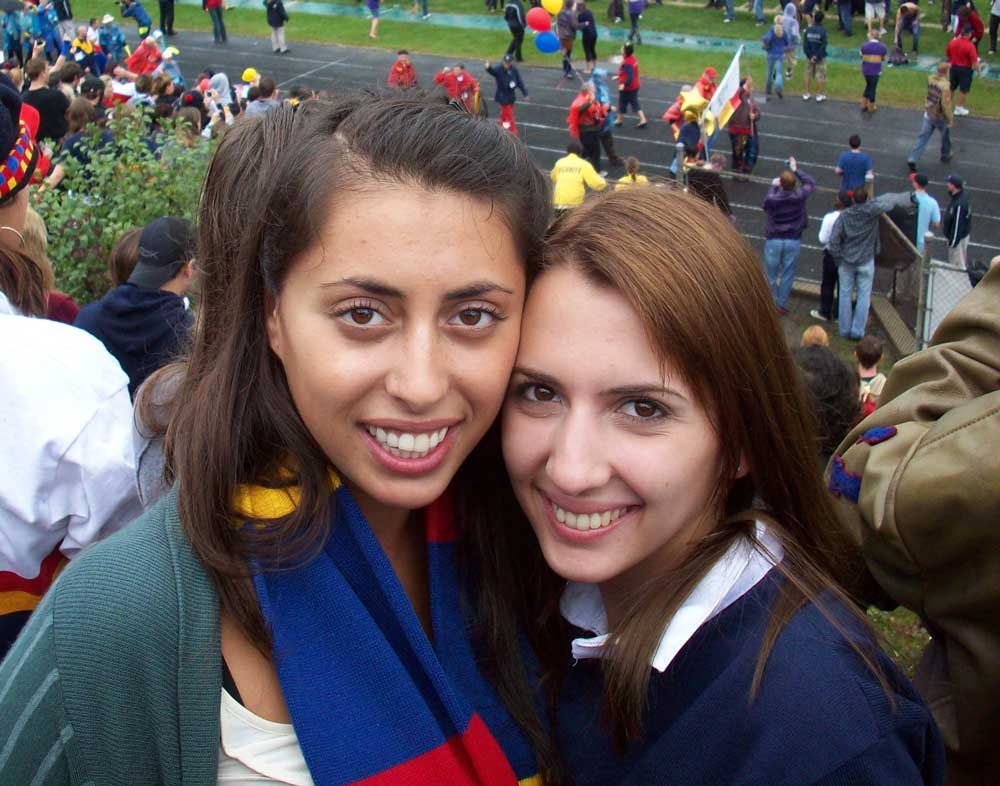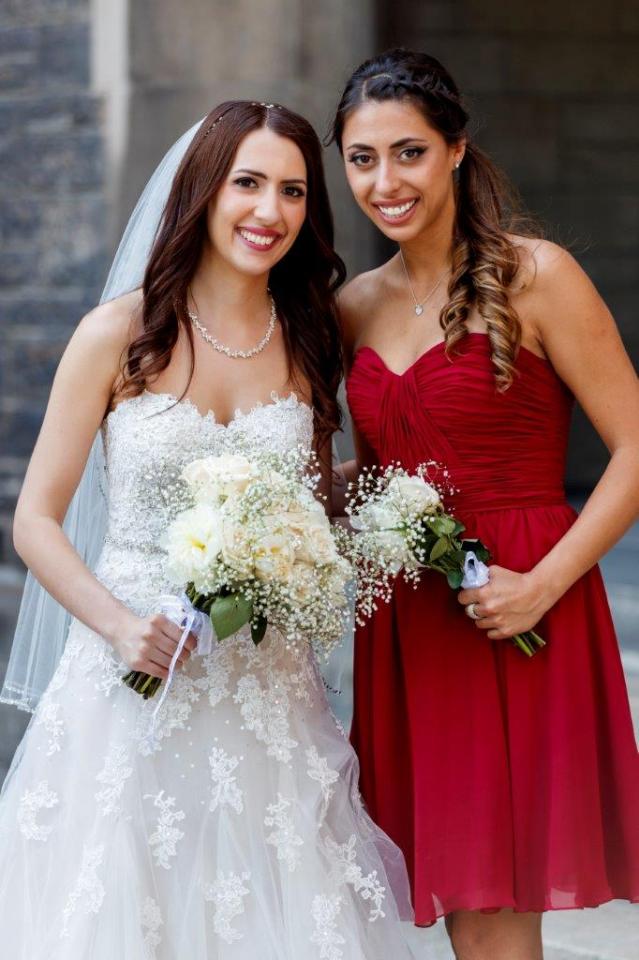Different Paths – Same Destination

The novelty of their similar-sounding first names may have started the ball rolling on the dock that day, but it didn’t take long before Ivayla Dingilova (pictured at right) and Ivana Corovic (at left) discovered that they had a lot in common. Both were very young when they’d arrived in Canada with their parents as refugees from an unsettled Eastern Europe. Ivayla was four when she and her parents left Plovdiv, Bulgaria, for a new life in Canada in 1990. Their departure followed the collapse of Communist Bloc countries after the fall of the Berlin Wall the previous year. The Corovics had fled war-torn Sarajevo, Yugoslavia, in 1992 when Ivana was just five. No member of either family spoke more than a few words of English.
Adapting to their new home was a challenge for Ivana’s parents, who had fled Sarajevo at the start of its civil war, leaving family and nearly everything they owned behind. Initially, her engineer father worked for an American engineering company in London, U.K., while her pharmacist mother took courses to learn English and to become recertified in her field, all while raising Ivana in a new city without any friends or family to turn to for help. Reunited two years later in Toronto, the Corovics thrived in their new homeland, welcoming a new member to their family, Ivana’s sister, Tiana, in 1994. “I have few memories of Sarajevo,” Ivana says. “Growing up in Oakville was challenging at first, since I was learning the language and had quite a strong accent. But I had all the same opportunities as my friends, thanks to my parents’ hard work and determination to make a new home for us here.”
It took two tries before Ivayla’s family was able to finally settle in Canada, but it was worth the effort, she says.
After the Berlin Wall fell, her father foresaw difficult times ahead for Bulgaria. The initial plan was for her father to test the waters in Canada and then send for his wife and daughter. “The day before he was to leave he took me to the local park to say goodbye,” Ivayla recalls. “That’s when my mom panicked, afraid that we wouldn’t be able to get out later because the political situation was still unpredictable. She immediately bought us airline tickets, at twice the price, and all three of us left the next day.”
The Dingilovs followed a well-known path for would-be refugees of the period. People would book a vacation to Cuba, which Bulgarians could easily visit (unlike forbidden Western, non-Communist destinations). At the plane’s refuelling stop in Gander, Newfoundland, they disembarked and claimed refugee status. “We carried our entire lives in our carry-on bags, knowing that we would never see our checked luggage again,” Ivayla says. “Nearly the entire planeload of passengers claimed refugee status, with the exception of a few Russians who stayed on the plane. I still remember my mother, wearing high-heeled boots and a light coat, looking at the snowbanks that must have been two metres high. She cried out to my father, ‘Where have you brought us?’”
Along with their fellow passengers, the Dingilovs were soon moved to an apartment complex in St. John’s, where volunteers from a local Anglican church lent a hand. “They gave English lessons and helped us in so many ways,” Ivayla recalls. “We’re still close friends with one family and see the mother every year when she visits Toronto. It was her three young granddaughters who helped teach me English.”
After being approved by immigration officials during their first interview to obtain refugee status, the family soon moved to Toronto, where employment opportunities were more plentiful. Both parents landed jobs and Ivayla made friends in school and in the neighbourhood.
Just two years later, she was crushed to learn that the family would have to go back to Bulgaria.
“Attaining refugee status was a two-stage process,” Ivayla explains. “During the second interview two years after we’d arrived, my parents were asked if they faced persecution in their homeland. They answered honestly that they did not. Wanting to provide a better future for their daughter wasn’t grounds for approval, unfortunately.”
After being turned down as refugees, the Dingilovs voluntarily returned to Plovdiv in October of 1993, with a distraught seven-year-old Ivayla in tow. “I cried a lot and kept saying that I just wanted to go home. My parents would say, ‘This is your home, this is where you were born, this is where your family is.’ But, for me, home was Toronto.”

Ivayla (left) and Ivana
Both Ivayla’s and Ivana’s parents’ goal for a life of opportunities for their daughters came to fruition; Ivana is a Senior Manager at PwC and Ivayla a Senior Manager at Deloitte Canada. The friends see each other as often as their busy schedules allow. They occasionally include Ivayla’s husband, Ian Macdonald, another BCom’09 classmate whom they met on that Frosh Week cruise 12 years ago. When the university sweethearts married last year, Ivana was one of the bridesmaids.
“While getting to know each other at Queen’s we realized that we’d actually met before,” says Ivana. “It was at a birthday party for a mutual friend of our families. We would have been about ten years old, but neither of us remembers having met each other that day.”
It would take another chance meeting, at Queen’s, to pave the way for this lasting friendship to take hold.
